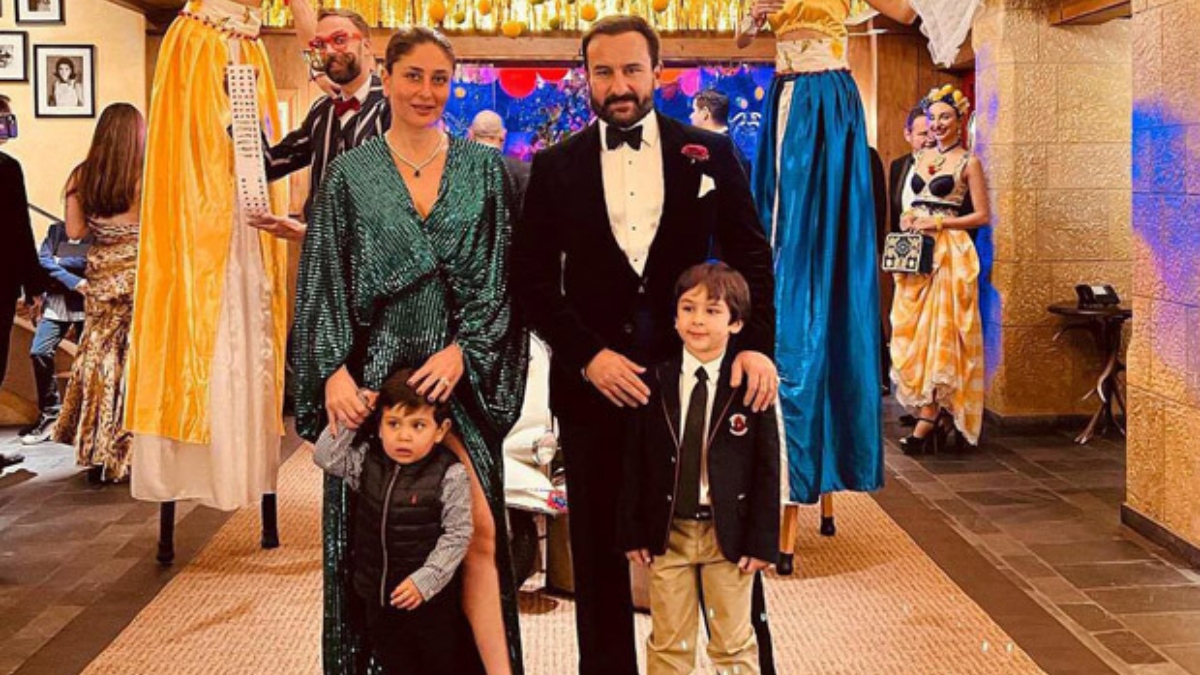 |
|
The recent stabbing incident involving Bollywood actor Saif Ali Khan has sent shockwaves through the industry and captivated the public's attention. Details of the event, as revealed by Saif himself in a recent interview with Bombay Times, paint a vivid picture of a terrifying ordeal experienced by the entire Khan family. The incident unfolded in the early hours of January 16th, while Saif was at home. His wife, Kareena Kapoor Khan, had gone out for dinner, leaving Saif at home with their two young sons, Taimur and Jeh. The narrative emphasizes the vulnerability felt by the family, particularly the children, during this terrifying event. The incident underscores the stark reality that even celebrities are susceptible to violent crimes and highlights the emotional toll such events can take on families. The attack seems random, as Saif describes the intruder as someone who demanded money. This randomness makes the incident even more disturbing, creating a sense of unease and highlighting the unpredictable nature of violence.
The immediate aftermath of the attack is particularly poignant, showcasing the raw emotions experienced by the family. Saif's elder son, Taimur, expressing a child's natural fear in the face of violence, asked his father, "Will you die?" This simple question reveals the profound impact the incident had on the young boy, revealing the very real fear of losing a parent. Saif's response, reassuring his son that he would be alright, must have been both heartfelt and a testament to his strength under pressure. The actor's decision to reach the hospital by auto rickshaw, accompanied by Taimur and his other son Ibrahim, suggests a desire to offer immediate reassurance and comfort to his children in the face of this crisis. The description of the scene emphasizes the chaos, vulnerability and panic experienced during that moment, painting a picture far from the glamorous image that is often associated with Bollywood.
Kareena Kapoor Khan's reaction further intensifies the dramatic tension of the narrative. The account describes her desperate attempts to seek help while frantically calling friends and family. Her frantic calls, met initially with unanswered phones, underscore the sense of isolation and helplessness she experienced during this frightening ordeal. Saif's account portrays Kareena's deep concern and her inherent protective instincts as a mother and wife. The scene also highlights the limitations of security measures and the vulnerability experienced even within the confines of a private home. The detailed account of Saif's scuffle with the attacker, who had knives and was wearing a mask, brings a level of visceral reality to the narrative. The description serves to humanize Saif, portraying him not just as a celebrity, but as a father and husband fiercely protecting his family. The physical wound highlights the unpredictable and dangerous nature of the crime and the potential for serious injury.
Adding another layer of complexity to the narrative is the reaction of Saif's youngest son, Jeh. His seemingly innocent gift of a plastic sword, intended to equip his father for future encounters with intruders, underscores the lingering fear and insecurity within the family. Jeh's statement about 'Geeta saving Abba and Abba saving me,' points to a deeply rooted sense of protection and dependence on family. This innocence of Jeh's words against the backdrop of the violence that occurred, further deepens the emotional impact of the story. The incident, then, becomes a story not just of a violent crime, but of the family's resilience in the face of adversity, the strength of familial bonds, and the profound impact of such events on the family dynamic. It also reflects the inherent vulnerabilities of even the most privileged.
The interview offers a rare and intimate glimpse into the lives of a celebrity family. While the story is undeniably tragic, it also offers a powerful testament to human resilience, and the strength of family bonds. It serves as a reminder of the very real dangers that can lurk in everyday life and challenges common perceptions about safety and security.
